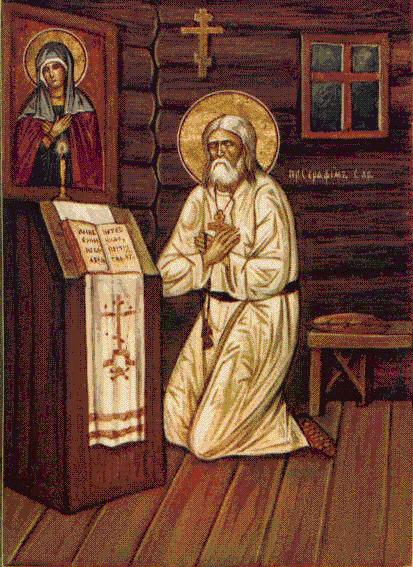
For the weak, I have become weak so that I might win over the weak; to all people I have become all things so that I might surely save some. All these things I do for the sake of the gospel, so that I might share in it. (1 Cor. 9:22-23)
St. Paul behaves as someone “under the law,” bound by Jewish observances, when he is with those who consider themselves obligated to keep the Old Testament observances and then behaves as someone “outside the law,” not bound by such observances, when he is with people who do not consider themselves obligated to keep such observances. The “weak” are a euphemism that parallels those “under the law,” the Christians in Corinth that think they are obligated to maintain the Old Testament practices.
St. Cyril of Jerusalem preached that Christ himself did likewise, becoming whatever was needed by those he was with:
Everywhere the Savior becomes all things to all men. To the hungry, bread; to the thirsty, water; to the dead, resurrection; to the sick, a physician; to sinners, redemption.
Sermon on the Paralytic, 10
St. Paul was accused of being a chameleon, an inconsistent crowd-pleaser who altered his behavior to please whoever he was with. He insists that his behavior was not inconsistent to please the crowd; rather, his behavior was completely consistent with the Gospel so that he could spend time with those who needed to hear the Good News. His behavior is consistent with bringing salvation to everyone, whether they keep the Old Testament laws or not.
St. Paul points out that his salvation–his “sharing in the Gospel”–depends on his making the Gospel available to others. The Good News of Jesus’ Death and Resurrection is available to everyone but St. Paul cannot share it if he keeps this Good News to himself. He must share it if it is to benefit him. His salvation depends on the salvation of others.
This communal attitude about salvation became common in the Christian East. St. Seraphim of Sarov, a Russian monk who lived at the same time as Mozart and George Washington, said that anyone who saves themselves saves a thousand people around them. To save oneself, in St. Seraphim’s view, is to achieve peace and fellowship with God in Christ. That peace and fellowship radiates out into the lives around a person just as waves ripple out from a pebble thrown into a pond.
No one is saved unless everyone is saved. I ask myself, how might I contribute to this process in a way that invites people in rather than makes them feel excluded?
